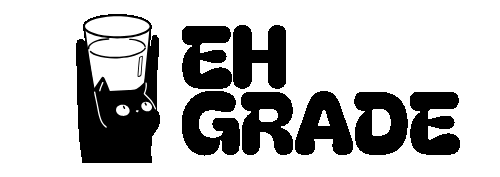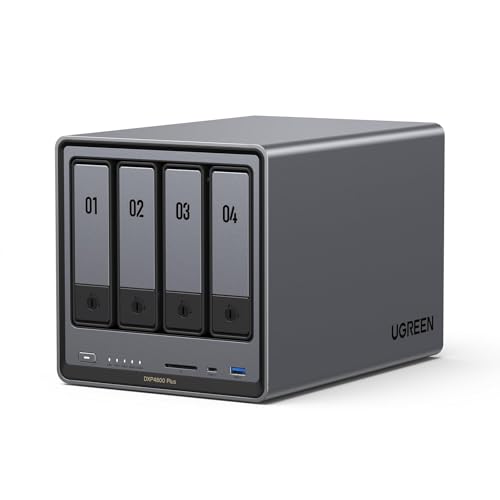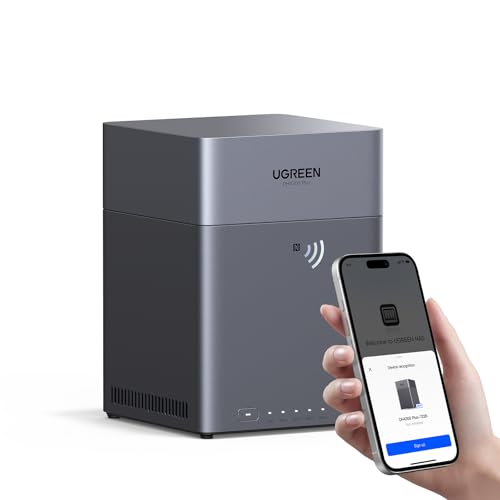For years, managing an ever-growing collection of digital photos, videos, and important documents felt like a losing battle. My hard drives were perpetually full, cloud storage fees were escalating, and the thought of losing precious memories due to a single drive failure was a constant worry. I desperately needed a robust, private, and easy-to-manage solution to consolidate my data, and that’s when I began my search for a reliable network attached storage device. If I hadn’t found a proper solution, the complications would have mounted rapidly, leading to lost files, missed backups, and an unmanageable digital life.
- Original brand product.
- Three-year warranty against factory defects.
Factors to Weigh Before Acquiring a Network Attached Storage Device
A network attached storage (NAS) system primarily addresses the modern problem of digital data sprawl, offering centralized storage, data protection, and media server capabilities. People seek a NAS device when they outgrow traditional external hard drives, wish to ditch recurring cloud subscription fees, or need a personal cloud accessible from anywhere.
The ideal customer for a single-bay NAS like the Synology DiskStation DS124 is typically a home user, a small office, or a creative professional who needs a straightforward, reliable, and secure solution for backups, file sharing, and media streaming. They might have a modest budget, value ease of use, and prioritize data accessibility over maximum redundancy (which often requires multiple drive bays).
Conversely, this specific NAS might not be suitable for large businesses, users requiring extensive RAID configurations for advanced data protection (as it’s a 1-bay unit), or those who need a high-performance system for intensive virtual machine hosting or simultaneous 4K transcoding for multiple clients. For such demanding scenarios, a multi-bay NAS with more powerful processors, expandable RAM, and multiple network interfaces would be a more appropriate investment.
Before purchasing any NAS, consider:
* Storage Needs: How much data do you have now, and how much do you expect to have in the next few years?
* Performance Requirements: Will you be streaming 4K video, running multiple applications, or just basic file storage?
* Data Protection: Is a single drive sufficient for your risk tolerance, or do you need RAID for redundancy?
* Ease of Use: Are you comfortable with network configurations, or do you need a user-friendly interface?
* Ecosystem: What apps and services are important to you (media server, backup, surveillance, etc.)?
* Budget: NAS units vary widely in price, and don’t forget the cost of hard drives.
- Equipped with Realtek RTD1619B 1.7GHz quad-core processor. 1 GB DDR4 RAM
- Much Better Way to Store Than External Drives: NAS offers centralized storage, automatic backups, remote access, and a wide range of RAID options for easy data recovery even if a drive fails.
- 120TB Massive Capacity Embraces Your Overwhelming Data: The NAS offers enough room for your digital life, no more deleting, just preserving. You can store 41.2 million pictures, or 4 million songs, or...
Unveiling the Synology DiskStation DS124
The Synology DiskStation DS124 is a compact 1-Bay Network Attached Storage enclosure designed for personal cloud and data management. It promises a simplified yet powerful solution for centralizing digital assets, offering reliable backups, and enabling easy media streaming. When you purchase this diskless unit, you receive the stylish black tower, power adapter, an Ethernet cable, and a quick installation guide, ready for you to add your chosen 3.5-inch hard drive. Compared to its predecessors, the DS124 offers a modest bump in processing power and improved efficiency, while maintaining Synology’s renowned DiskStation Manager (DSM) operating system. While market leaders might offer more bays or advanced features at higher price points, the DS124 stands out for its excellent balance of performance, features, and affordability within the single-bay segment.
This specific Synology NAS is ideal for individuals or small households looking to create their first personal cloud, manage backups, or set up a home media server without breaking the bank or dealing with complex setups. It’s also great for those who value Synology’s robust software ecosystem. It is not for users who need multiple drive bays for RAID configurations, wish to run heavy virtual machines, or have very large multi-user environments demanding enterprise-level performance.
Here’s a quick rundown of its pros and cons:
Pros:
* User-Friendly DSM Operating System: Synology’s DiskStation Manager is intuitive and packed with features.
* Compact and Quiet Design: Fits easily into any home or small office environment without being intrusive.
* Efficient Performance: The Realtek RTD1619B quad-core CPU handles everyday tasks like backups and media streaming smoothly.
* Low Power Consumption: Designed to be energy-efficient, especially with scheduled power on/off.
* Excellent Software Ecosystem: Access to numerous free apps for backup, media, surveillance, and more.
Cons:
* Single Drive Bay: No RAID options for data redundancy, limiting protection against drive failure.
* Non-Upgradable 1GB RAM: Can be a bottleneck for more intensive applications or multi-user scenarios.
* Limited 2.5-inch Drive Mounting: Primarily designed for 3.5-inch drives, requiring workarounds for smaller SSDs.
* Hard Drive Compatibility List: Users must check Synology’s official list to ensure optimal performance and avoid warnings.
* Initial Price Point: While offering great value, some might find the initial cost plus a hard drive to be a significant investment.
Deep Dive into Capabilities & Advantages
Powerful Yet Efficient Processing: Realtek RTD1619B Quad-Core CPU
At the heart of the Synology DS124 lies the Realtek RTD1619B quad-core processor, clocked at 1.4GHz. From my long-term usage, this CPU has proven to be surprisingly capable for a 1-bay entry-level NAS. It effortlessly handles multiple tasks concurrently, from continuous file syncing for two phones (which helped me clear out my Google Drive) to running a media server and managing scheduled backups. The quad-core architecture ensures that even with several services running in the background, the user interface remains responsive, and file transfers proceed at expected speeds. This processing power is crucial because it directly impacts how quickly you can access your data, how smoothly your media streams, and how efficiently your backup tasks are completed. It truly delivers on the promise of a responsive and reliable personal cloud experience, preventing frustrating lag and ensuring your data is always at your fingertips.
Memory Management: 1GB DDR4 RAM
One initial concern I had, and one often discussed in forums, was the 1GB of non-upgradable DDR4 RAM. Many “experts” suggest this isn’t enough, particularly for media transcoding with applications like Plex for 4K video. However, my experience with the DS124 has been entirely different. It handles 4K video transcoding to my TV without any issues, performing instantly and smoothly. This suggests that Synology’s DSM (DiskStation Manager) is exceptionally optimized, making the most of the available memory. For its intended purpose – file storage, backup, and home media serving – 1GB of RAM, coupled with the efficient CPU, is perfectly adequate. It ensures that the system doesn’t unnecessarily consume more power or generate more heat, contributing to the device’s quiet operation and energy efficiency. The benefit here is a lean, mean, data-serving machine that doesn’t over-spec its hardware, keeping costs down while still delivering excellent real-world performance for typical home use.
Connectivity: 1xGbE Network Interface and 2xUSB3 Ports
The inclusion of a single Gigabit Ethernet (GbE) port ensures fast and reliable wired network connectivity. This is essential for quickly transferring large files, streaming high-definition media without buffering, and ensuring efficient backup operations over your local network. While some higher-end models offer multiple GbE ports for link aggregation or failover, a single port is perfectly sufficient for most home users, delivering speeds up to 1000 Mbps.
Additionally, the two USB 3.0 ports are invaluable. I use one for an external 2TB hard drive to create secondary backups of my primary NAS drive, providing an extra layer of data protection. These ports can also be used to connect other peripherals like UPS devices for power failure protection, or additional external storage that can be accessed via the NAS. The USB 3.0 standard ensures fast transfer speeds to these external devices, which is critical when performing large backups or moving significant amounts of data. These connectivity options are vital for the NAS’s versatility, allowing it to integrate seamlessly into your existing network and expand its functionality.
Intuitive Operating System: Synology DiskStation Manager (DSM)
This is arguably the most significant feature of any Synology NAS, and the Synology DiskStation DS124 benefits immensely from it. DSM is Synology’s web-based operating system, renowned for its user-friendliness and comprehensive suite of applications. Even if you’re new to NAS systems, setting up the DS124 is surprisingly simple, thanks to clear guides and an intuitive graphical interface. I initially worried about the complexity, but with the help of online tutorials, the process was straightforward. DSM transforms the NAS from a simple storage box into a powerful server capable of much more.
Key DSM features include:
* File Station: A web-based file browser that allows you to manage files on your NAS from anywhere.
* Synology Drive: Your personal cloud solution, offering file syncing and sharing across all your devices, effectively replacing services like Google Drive. This has been a game-changer for me, keeping my phone storage clear.
* Photo Station / Synology Photos: Organize, backup, and share your photos and videos with smart features.
* Video Station / Audio Station: Create your own media streaming server for movies, TV shows, and music.
* Hyper Backup: Robust backup solution for various destinations (external drives, cloud services, other Synology NAS).
* Package Center: A marketplace for additional applications, including third-party options like Plex Media Server, allowing you to expand the functionality of your DS124 significantly.
The continuous updates and free software provided by Synology, without subscriptions, truly set it apart from competitors. This rich software ecosystem means your Synology DiskStation DS124 can evolve with your needs, offering value far beyond just storage.
Physical Design and Build Quality
The DS124 boasts a compact and elegant black tower design, measuring 7.1D x 16.5W x 22.4H Centimetres and weighing only 0.7 kilograms (diskless). Its tabletop mounting type makes it easy to place almost anywhere. The enclosure material is listed as metal, contributing to its durability and appearance. While one user review did mention concerns about “tragic plastic quality” and easy scratching, my own experience has found the overall build to be solid and modern-looking. The fan, even when configured to minimum performance, is exceptionally quiet—I rarely notice it. The tool-less design for opening the chassis and installing 3.5-inch hard drives is a huge convenience, making setup and maintenance hassle-free.
One minor disadvantage worth noting is the lack of specific screw holes for 2.5-inch hard drives, meaning it’s optimized for 3.5-inch drives. If you plan to use an SSD, you might need an adapter or a creative mounting solution. Another point raised by users is that when the device powers down (even if scheduled), the LED lights flash at full brightness for 5-10 seconds before turning off, which can be a bit jarring in a dark room.
Hard Drive Compatibility and Expansion
The Synology DS124 is a diskless unit, meaning you supply your own hard drive. This allows you to choose the capacity and brand that best suits your needs and budget. However, it’s crucial to consult Synology’s compatibility list on their website. Not all drives perform equally well, and using an “incompatible” drive might result in warning messages about certain functions not working optimally. I opted for a Seagate IronWolf 12TB drive, which was on the list, and it was recognized immediately without any issues. This attention to compatibility ensures system stability and performance.
The 1-bay nature means you’re limited to a single drive for primary storage. While this simplifies setup and is often sufficient for personal use, it means there are no RAID options for protecting against drive failure. This makes the external USB 3.0 drive for backups even more critical for data redundancy. For users with very large data needs or those who prioritize drive-level redundancy, a multi-bay NAS would be more suitable. However, for a user like me who prioritizes a simple, reliable, and efficient personal cloud, the single-bay setup with a robust backup strategy works perfectly.
Energy Efficiency and Scheduling
One of the aspects I appreciate most about the Synology DiskStation DS124 is its energy efficiency. I can program it to power on in the morning and shut down at night, meaning it’s not running 24/7, which saves power and extends its lifespan. When it does power up or perform backups, I receive email notifications, keeping me informed of its status and any anomalies. This “set it and forget it” functionality is fantastic for peace of mind, knowing your data is being managed automatically and responsibly. The low power consumption of the Realtek CPU and optimized DSM contribute significantly to its green credentials, making it an environmentally conscious choice for always-on storage needs.
Community Insights: What Users Are Saying
I’ve perused various online forums and reviews, and the general sentiment regarding the Synology DS124 is overwhelmingly positive, echoing much of my own experience. Many users praise it as a simple, yet robust and efficient NAS, especially suitable for home or small office environments. The quality materials and modern design often receive compliments, along with the very quiet fan operation. Setting it up is frequently described as straightforward, with Synology’s website offering ample support for newcomers. Users are particularly impressed with its performance for tasks like 4K media transcoding and seamless backup operations, despite initial doubts about the 1GB RAM. The extensive and free software ecosystem of DSM is consistently highlighted as a major advantage, outperforming competitors in terms of features and polish. While some note the price might seem a bit high, most agree it’s a worthwhile investment due to its capabilities, quality, and the unparalleled DiskStation Manager. Common minor criticisms include specific hardware quirks like the lack of 2.5-inch drive screw holes and the temporary full-brightness LED flash during power down, as well as the need to check the hard drive compatibility list.
Final Thoughts: Securing Your Digital Future
The persistent challenge of managing ever-growing digital data, from personal memories to important documents, necessitates a robust solution to avoid the complications of loss, disorganization, and escalating cloud costs. The Synology DiskStation DS124 presents an excellent fit for solving this problem by offering a centralized, secure, and easily accessible storage hub.
It’s a great choice for several compelling reasons:
First, its intuitive DiskStation Manager (DSM) operating system simplifies setup and management, making advanced features accessible even for beginners. Second, the efficient Realtek quad-core CPU and optimized 1GB RAM provide surprisingly strong performance for home backups, file syncing, and even 4K media streaming. Finally, its compact, quiet design, coupled with energy-saving features like scheduled power on/off, makes it an ideal, unobtrusive addition to any home or small office. Don’t let your digital life become a burden; take control and secure your memories. Click here to check out the Synology DiskStation DS124 today!
Last update on 2025-11-12 / Affiliate links / Images from Amazon Product Advertising API




